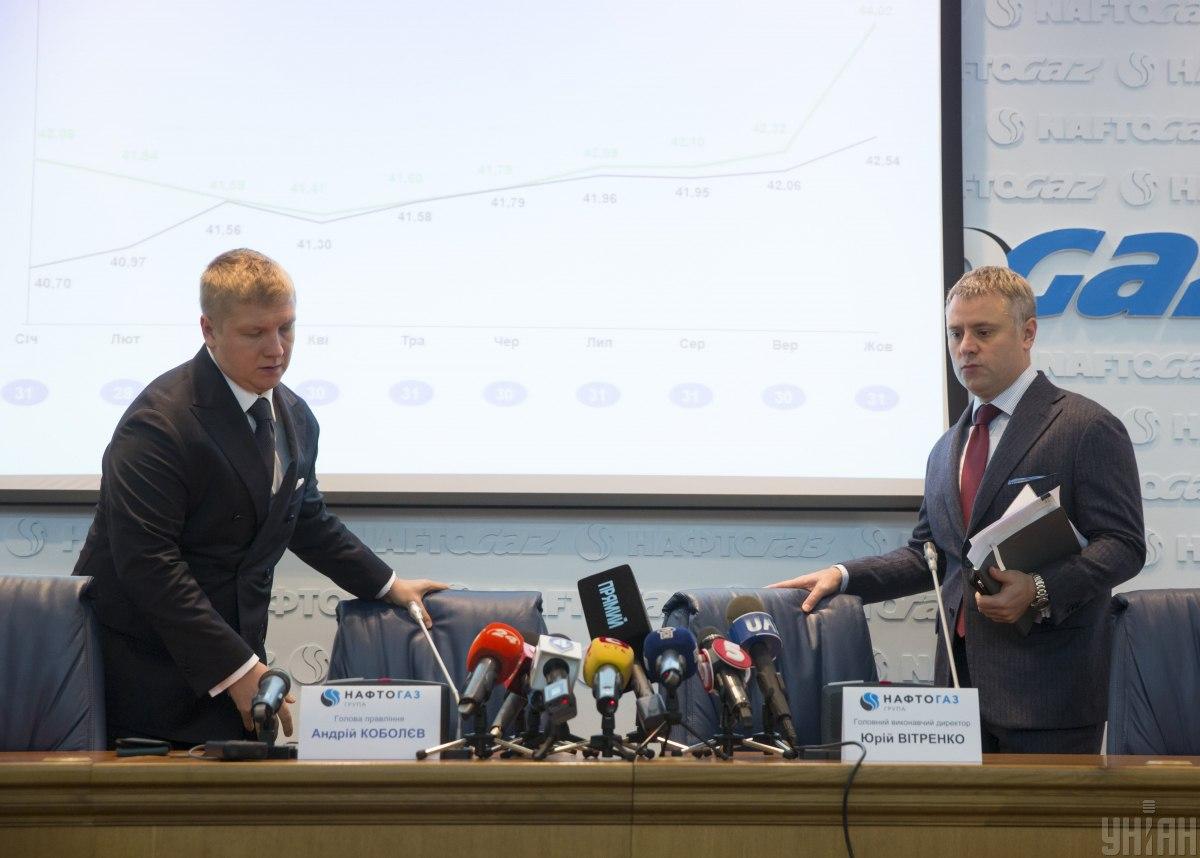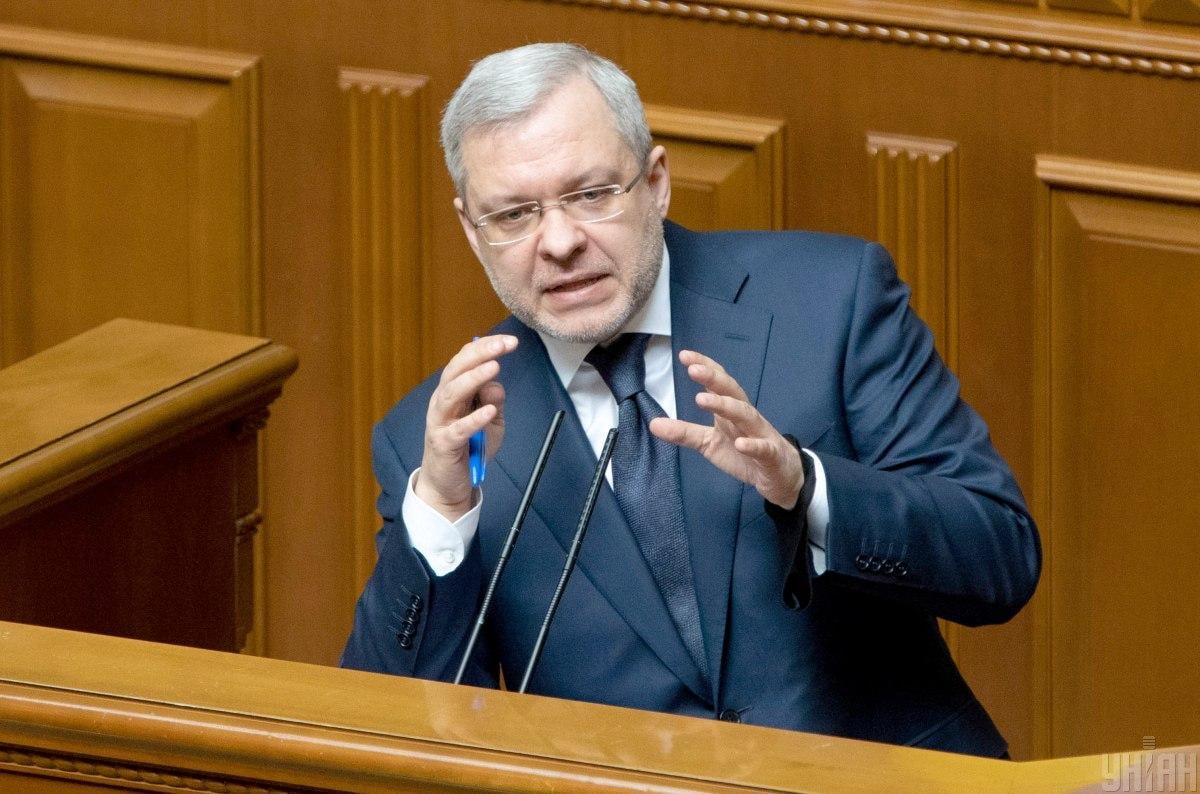
Week's balance: Cabinet sets household electricity tariffs and replaces Naftogaz CEO, while Rada appoints energy minister
The Cabinet of Ministers determined what the electricity tariffs would be for the households for the next two months and replaced the CEO of the country's largest state-owned company, Naftogaz of Ukraine, while the Verkhovna Rada appointed Herman Halushchenko Minister of Energy – these are the key economic news of the outgoing week.
The last week of April was full of unexpected personnel reshuffles both in the government and in the country's largest state-owned company.
The week's main event, without exaggeration, was a lightning-speed decision by the Cabinet to dismiss Andriy Kobolyev, CEO of Naftogaz of Ukraine. Kobolyev had been managing the company for more than seven years.
The formal gronud for the decision was the a reported net loss of UAH 19 billion in 2020 against the profit target of over UAH 11 billion.
The dismissed Kobolyev said he would not "make a circus show", but at the same time, promised to challenge the government's move in court.
"I don't intend to make a circus show out of it and expose Naftogaz to attack. Now the team's main task is to maintain the dynamics of work that have been established in our country recently, and to ensure the development of production, retail business, and other strategic directions of the group," Kobolyev said.
By the same decree, the government appointed the former senior manager of the same company, Yuriy Vitrenko, as its new CEO, from April 29 for a period of one year. At the time of the appointment, Vitrenko was serving as acting energy minister.
At his first press conference for journalists on Friday, the new leader promised that he would make the company profitable by the end of this year.
Vitrenko also said he intended to create conditions for reducing gas prices for consumers by increasing the state holding's domestic production.
"We will create conditions for the market to have justifications for lower prices. This is an increase in our own gas production. A task will be set for Ukrgazvydobuvannya, which is responsible for own gas production. We will also be working to ensure that the whole chain starting from gas production was as accessible as possible for the Ukrainian consumer, so this will create a justification for lowering the price," he said.
According to the Naftogaz CEO, the company will resume pro-active legal pressure on Russia's Gazprom. The company intends to once again appeal to the Stockholm Arbitration to challenge some of the provisions of the transit contract with Russia, concluded at the end of 2019. However, he stopped short of specifying any details of the claim.
New head of energy ministry
Another important event in the last week of April was the appointment of a new Minister of Energy. For almost a year, the key ministry was headed only by "acting" chiefs.
The Verkhovna Rada, by a constitutional majority of votes, appointed Herman Halushchenko head of the Ministry of Energy. Halushchenko is a Ukrainian lawyer who at the time of his appointment worked as vice-president of the national nuclear energy generating company, Energoatom.

Speaking from the parliamentary rostrum, Halushchenko said he knowed ways to reduce gas and electricity tariffs for vulnerable strata through market means, not administrative ones.
An extremely relevant promise came against the backdrop of the announcement by Ukrainian gas suppliers of annual gas tariffs for the households. From May 1, all Ukrainians will be automatically transferred to fixed prices, which, depending on suppliers, range from UAH 7.88 to UAH 13.5 per cubic meter.
The new head of the energy ministry considers the issue of Ukraine's energy security and the path to joining the European energy system ENTSO-E as true challenges.
"Today, the domestic energy industry is in a very difficult situation. Huge debts, imbalances in the electricity market, incomplete integration of energy systems with those of the EU, high energy intensity of Ukrainian industrial enterprises, fluctuations of gas prices in winter, the shadow market of fuels and lubricants, and long-term problems of the coal industry," Halushchenko said, listing the existing issues.
"External threats in the energy sector also require extraordinary efforts of diplomacy, including in opposing Nord Stream 2, integrating the Ukrainian gas and electricity markets into those of the EU, and diversifying energy supplies," the minister added.
The national energy industry, which has long been without a full-fledged leader, has high expectations from the new minister. Only time will tell whether the official will cope with the tasks assigned.
Stable electricity tariffs
Another important event for the Ukrainian consumer in the outgoing week was the government's decision to extend the current electricity price for the households.
By the way, the current tariff at UAH 1.68 per kilowatt hour for household consumers stays stable due to the mechanism of special obligations operating in the electricity market.
"Today we will extend the mechanism of special obligations until June 30. The price for electricity for people remains unchanged, that is, UAH 1.68 per kilowatt hour," Prime Minister Denys Shmyhal said at a government meeting.

Without the adoption of the relevant resolution, from May 1, the price of electricity for the households would cease to be regulated by the Cabinet, which means that household consumers would have to buy energy at the market price – three times higher.
Another decision in favor of the consumer was the approval by the Verkhovna Rada of a preferential tariff for electricity for the population living in 30-kilometer zones around nuclear power plants.
According to the document, the government is advised, within 14 calendar days, to establish a preferential fixed price for electrical energy for household consumers who permanently reside in the 30-kilometer zone around nuclear power plants, at 70% of the current tariff.
Thus, the Cabinet will return the 30% discount on electricity, which has been canceled since the beginning of the year.
Among other important events for the national economy, we can also recall this week's successful issue by the finance ministry of eurobonds worth $1.25 billion at a rate of 6.875 percent per annum, maturing in 2029.
From May 1, Ukrainians will switch to new annual gas tariffs, and steady heat with periodic rains will come to the country.
The upcoming work week will only last three days before the country goes for another three-day weekend. Amid the weakening of quarantine restrictions in the capital and in other regions of the country, social activity will start reviving, but people must not let their guard down. Let's take care of ourselves and our loved ones.
Anna Bredikhina

